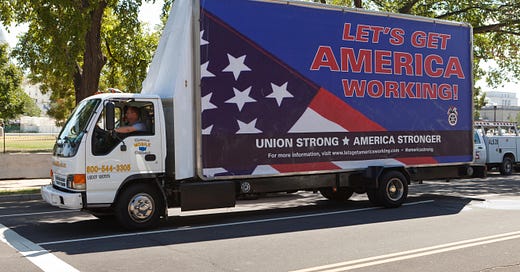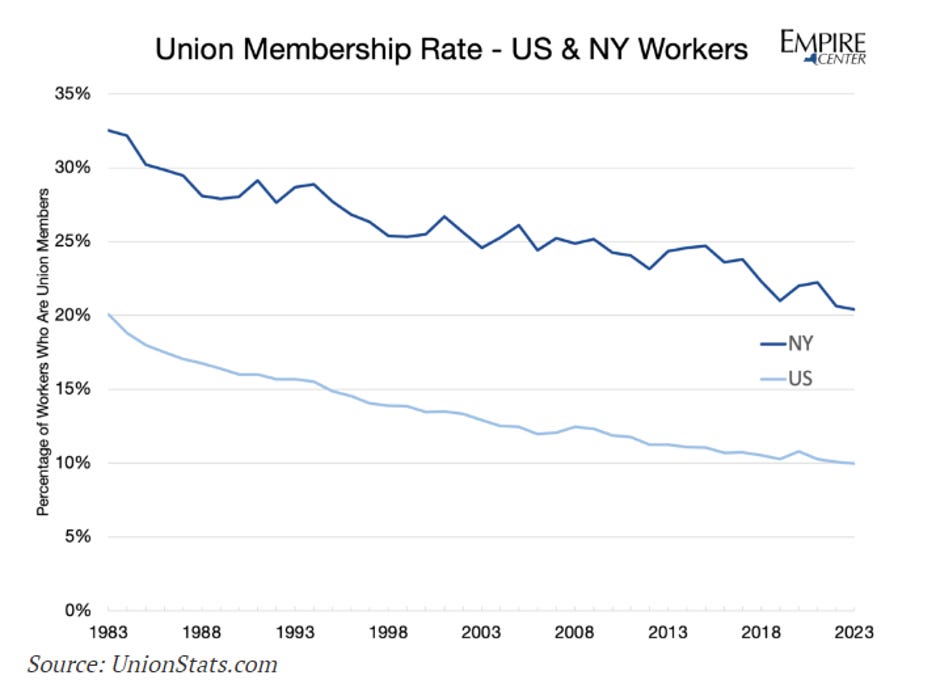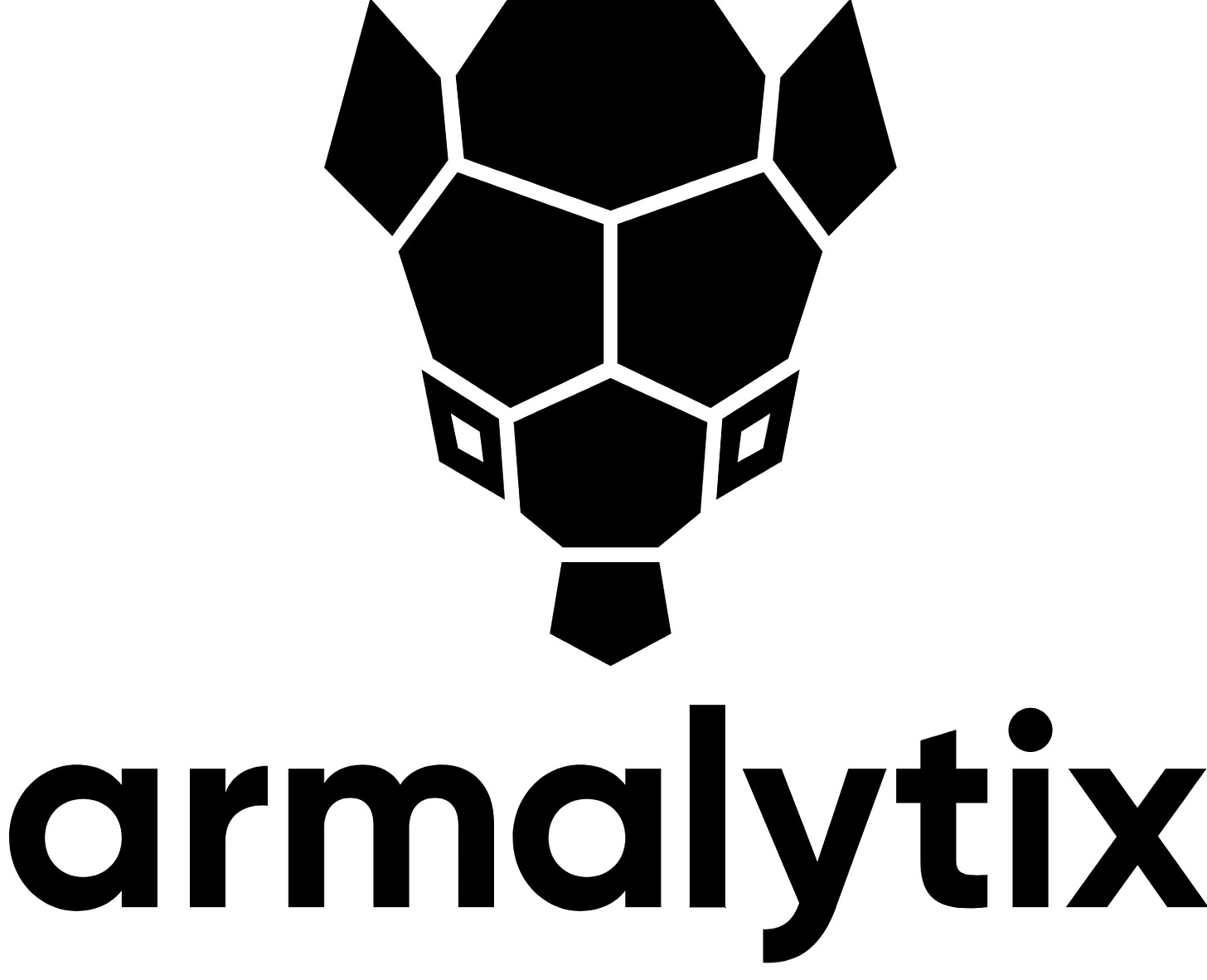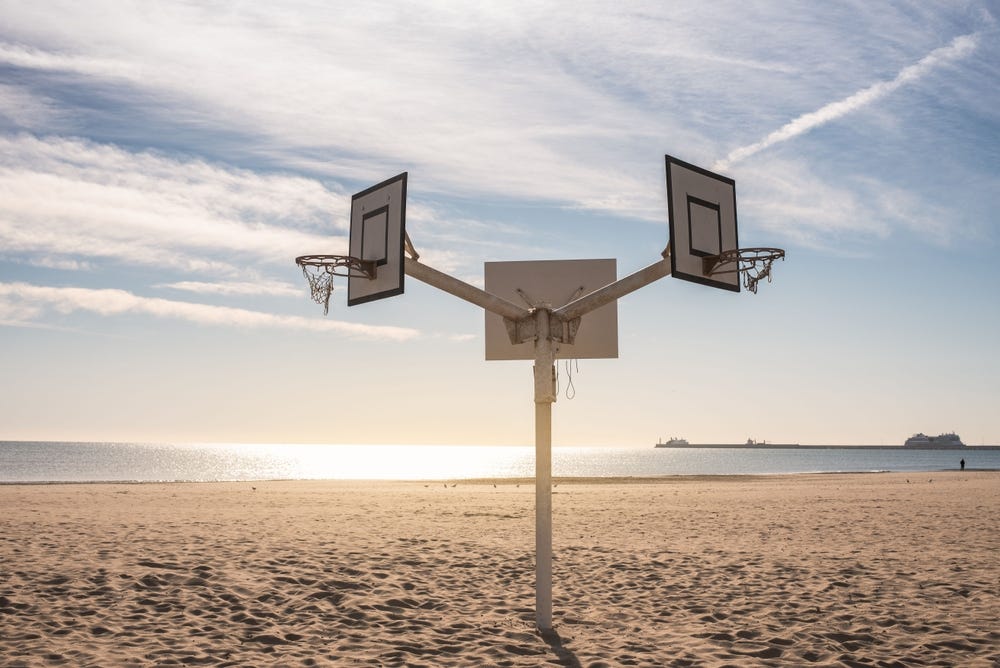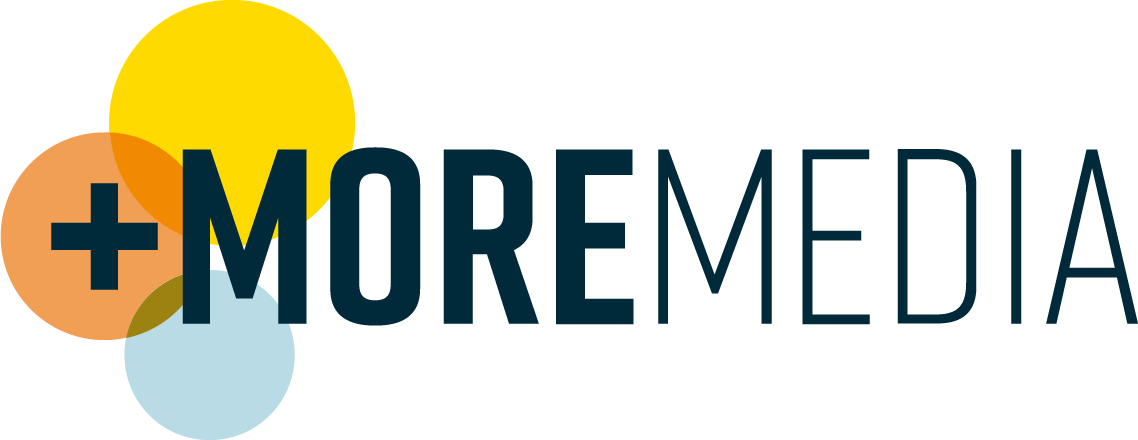Online gambling is a ‘job-killer’, say unions
Union gaming opposition, prop betting moves, EGBA calls time on remaining monopolies +More
Do unions have the power to stop online gambling?
In +More: Missouri sports betting, Alabama hangs by a thread.
Plans afoot to restrict NBA prop bets.
EGBA wants to call time on the bloc’s last remaining monopolies.
But it all amounts to nothing if together we don't stand.
Unions vs. online gambling
Labor pains: During the California online poker debates of the 2010s, there were four main stakeholder groups: tribes, commercial cardrooms, online poker companies and the horseracing industry. The inclusion of racing always strikes people as odd until you realize the political strength the sport wields due to its ties to organized labor.
During a 2016 hearing, a parade of California voters – i.e. union members – called on lawmakers to pass legislation to save their pensions and jobs.
Racing had previously opposed the legislation. It only came on board when it was offered a massive subsidy.
Who’s got the power? California was too far gone for the unions to tip the scales. Still, it crystallized the power of unions, as politicians suddenly became keen on online poker once union leaders and members began contacting them in support of the bill. That power cuts both ways.
When unions oppose the legislation, they can muster even more support, as we’ve seen in Maryland and New York, two states that flirted with online casino legalization this year.
Unions in 2024
Union membership is declining but, according to the US Bureau of Labor Statistics, ~21% of New York’s wage and salary workers were union members in 2022. Union membership in Maryland is roughly half that number.
That stat has a caveat, as only 12% of private sector employees belong to a union, but this is still a powerful voting bloc.
Union opposition in Maryland
Maryland’s union leaders came out against online gambling legalization before a bill was even filed. In an opinion article in the Baltimore Sun, Tracy Lingo, president of UNITE HERE Local 7, and Paul Schwab, executive secretary-treasurer of UNITE HERE Local 25, framed online gambling as a job-killer.
“The expansion of online gambling would eliminate casino jobs and reduce the incentive to invest in or expand Maryland’s casinos,” they wrote.
“It will harm thousands of Maryland workers who rely on in-person gaming and tips. It will undermine the promise of good jobs and economic development that the industry made to Maryland’s voters in 2008.”
Union opposition in New York
A letter from the Hotel & Gaming Trades Council addressed to state Sen. Joseph Addabbo Jr. and signed by 700 employees of Resorts World casino at Aqueduct claimed online gambling threatens the “permanent, high-quality jobs that New Yorkers can live and retire on.”
“We find it appalling that you are pushing legislation that would hurt workers like us and our industry in order to benefit a handful of companies who are seeking massive profits at our expense,” the letter stated.
The origin story
The unions’ fear of online gambling is rooted in two places: the ongoing fear of jobs being outsourced or replaced by computers and the inability to measure online gambling’s impact on states such as New Jersey due to casino closures and openings and the pandemic and ensuing lockdowns.
The latter has led to conflicting research and reports on online gambling’s impact, which has heightened the concerns of the former.
Armalytix versus today’s operator manual affordability and SOF-AML process:
2.5x more customers returning their financial documents
3x faster document return from customers
30% remote sector completion rates
85% land-based sector completion rates
Keep your players playing and meet the regulations, today and tomorrow.
Armalytix, an RAISP since 2019, is leading the market in 6 different industries and growing. Simple, safe and effective financial risk checks. Get in touch.
+More
North America
Missouri: The campaign launched by the state’s professional sports teams to get sports betting put on the ballot for November appears to have succeeded after it gained over 340k signatures, according to a report from AP.
The office of Missouri Secretary of State Jay Ashcroft must now validate the signatures before the proposal makes it on the ballot.
The campaign needs roughly 180,000 signatures to qualify.
A separate constitutional amendment initiative to allow a casino at Lake of the Ozarks backed by Bally’s and developer RIS also submitted 320,000 voter signatures, the St. Louis Post-Dispatch reported. That petition needs 170k valid signatures.
Illinois: There has been no movement on the House bill to legalize online iCasino with the last day of the legislative session looming on May 24. The bill failed to appear on the latest agenda from the House Gaming Committee and chair Dan Didech told PlayUSA any inclusion was a long shot.
The bill would legalize iCasino with operators able to have three skins per license and would be taxed at 15%.
Alabama: A constitutional amendment to allow lottery and gambling that passed the Alabama House fell one vote short in the Senate last week, and while it may resurface for a final vote this week no senators have indicated they will switch their allegiance.
One figure who has spoken out on the matter is Donald Trump Jr, who briefly paused his stream of online electioneering to stick the boot into the Senate.
“Whenever I ask anyone from there what’s going on in the state this is all they talk about,” Don Jr said on X.
“Why’s their Senate refusing to let the people vote on a clean bill to legalize the lottery and fund education when 45 states already do it? Wouldn't they rather keep the billions of $$$ in Alabama instead of sending it to other states? Makes no sense to me!” he added.
Global
Sweden is taking the fight to match-fixers with a new information-sharing directive that will bring the gambling regulator Spelinspektionen together with financial intelligence teams. The new initiative, which will involve sharing information on a new, common platform, enters force in July.
The Dutch gambling regulator has chided two operators for violating role model rules. One unnamed betting provider offered players the chance to win a jersey of a well-known footballer from a Dutch Eredivisie club, while the second used images of a famous actor to advertise online gambling. Dutch operators have been banned from using so-called role models, such as athletes, celebrities and social media influencers since July 2022.
Compliance Manager – London
Head of Compliance – Cape Town
Compliance Analyst – Cardiff
Stop the props moves
Line in the sand: The future of prop betting in NBA games appears to be clouded after a report from ESPN suggested that, in the wake of the Jontay Porter betting scandal, the league and the operators are in discussions over changes to the allowed betting menus in order to limit such occurrences in the future.
According to the ESPN article, among the changes being discussed is prohibiting betting on players on two-way contracts between the G League, the NBA’s official minor league, and the NBA.
The article went on to say that more extreme measures such as not allowing bets on the ‘under’ on a player prop have been considered. However, there are concerns that restricting wager types could push bettors into the unregulated betting market.
An NBA spokesperson told ESPN the league had worked closely with the official betting operators on integrity monitoring. “We are best positioned to identify potential betting anomalies and to act to protect the integrity of our game,” they added.
The discussions come when prop betting on college competitions is also the subject of debate, with the NCAA president having made a call in March for all states that have legalized sports betting to consider banning all forms of college prop bets.
To date, four states have heeded the call, with Maryland, Ohio, Vermont and Louisiana all banning the bet type.
Not a big college town: Adding fuel to the debate was Penn Entertainment’s Jay Snowden, who told analysts on the company’s Q1 call last week that prop betting made up a “very small percentage of handle for college games, and for college football” in particular.
“I would view it as largely a non issue,” he added. “I think people who are looking to bet player props for college are probably going to continue to make wagers.
“They may just make wagers on game outcomes or NFL props as opposed to college player props.
Not moving the needle: He noted the bans already in palace in the four states mentioned above and suggested the impact of removing college prop bets from the menu was negligible.
“We have experience of some states already prohibiting this and our volumes in those states on college football overall versus the states that allow it are really not materially different as a percentage of total wagers in those states.”
As more and more suppliers gravitate towards regulated markets to enhance their reputation, Compliable’s cutting-edge platform is able to service markets across North America, Europe and LatAm, helping providers to get licensed in the most streamlined way possible.
Swift application process – on average, it takes just 27 minutes to complete the onboarding journey
Key Licensing Module – decision makers can manage key licenses through a streamlined system
Unique Compliance Dashboard – apply across multiple regions and track applications from the outset
Find out more about Compliable’s licensing process here.
Last call for Europe’s monopolies
Let it go: Europe’s top industry lobby group wants to call time on the bloc’s last remaining monopolies as it pushes the benefits of a continent-wide multi-licensing system.
“The time has come for the last remaining European countries to embrace this optimal form of online regulation,” said European Gaming and Betting Association (EGBA) secretary-general Maarten Haijer.
EGBA has published research collated from 15 years of experience that surmises the direction of travel is away from the prohibitive, state-run monopolies of the past and that the last holdouts, such as Norway, Iceland, Slovenia and Switzerland, are standing in the way of progress.
“While a few exceptions still exist, governments are concluding that public policy objectives, particularly related to consumer protection and tax generation, are more effectively met through well-regulated online competition,” Haijer said.
Calendar
May 7: SBC Summit North America Player Protection Symposium
May 28-30: IAGA, Washington DC
June 6: Gaming in Holland
Less Than 120 Days To Comply
Frictionless affordability checks are required from 30 August 2024. No time to waste – email michael@dotrust.co.uk and join other leading operators including Rank and Lottoland on the leading dedicated platform for financial assessment.
An +More Media publication.
For sponsorship inquiries email scott@andmore.media.


